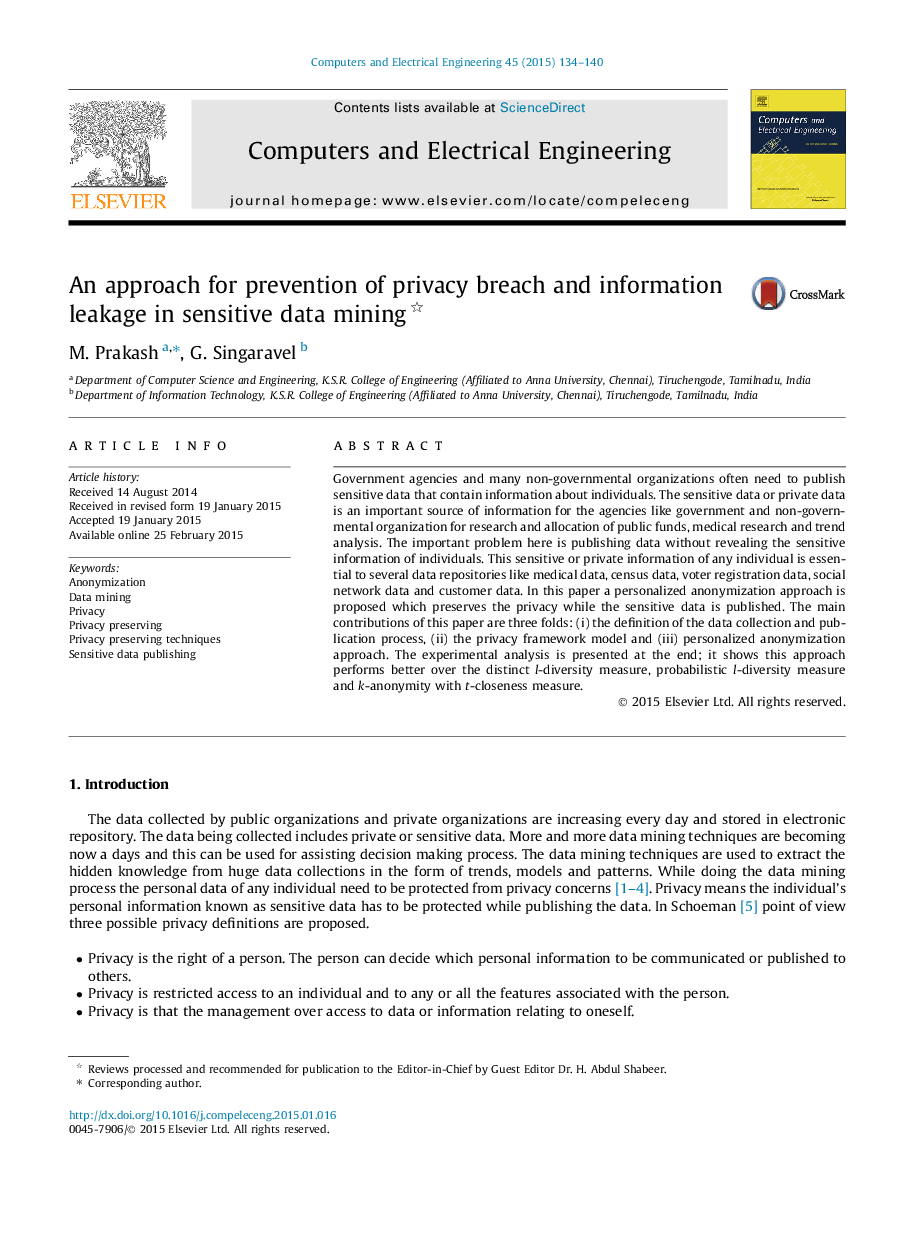| Article ID | Journal | Published Year | Pages | File Type |
|---|---|---|---|---|
| 453671 | Computers & Electrical Engineering | 2015 | 7 Pages |
•It prevents homogeneity, skewness, similarity and background knowledge attacks.•The privacy is ensured while publishing sensitive data.•Only fewer partitioning need to be done for a stronger privacy requirement.•It gives better efficiency over the previous approaches.
Government agencies and many non-governmental organizations often need to publish sensitive data that contain information about individuals. The sensitive data or private data is an important source of information for the agencies like government and non-governmental organization for research and allocation of public funds, medical research and trend analysis. The important problem here is publishing data without revealing the sensitive information of individuals. This sensitive or private information of any individual is essential to several data repositories like medical data, census data, voter registration data, social network data and customer data. In this paper a personalized anonymization approach is proposed which preserves the privacy while the sensitive data is published. The main contributions of this paper are three folds: (i) the definition of the data collection and publication process, (ii) the privacy framework model and (iii) personalized anonymization approach. The experimental analysis is presented at the end; it shows this approach performs better over the distinct l-diversity measure, probabilistic l-diversity measure and k-anonymity with t-closeness measure.
Graphical abstractFigure optionsDownload full-size imageDownload as PowerPoint slide
